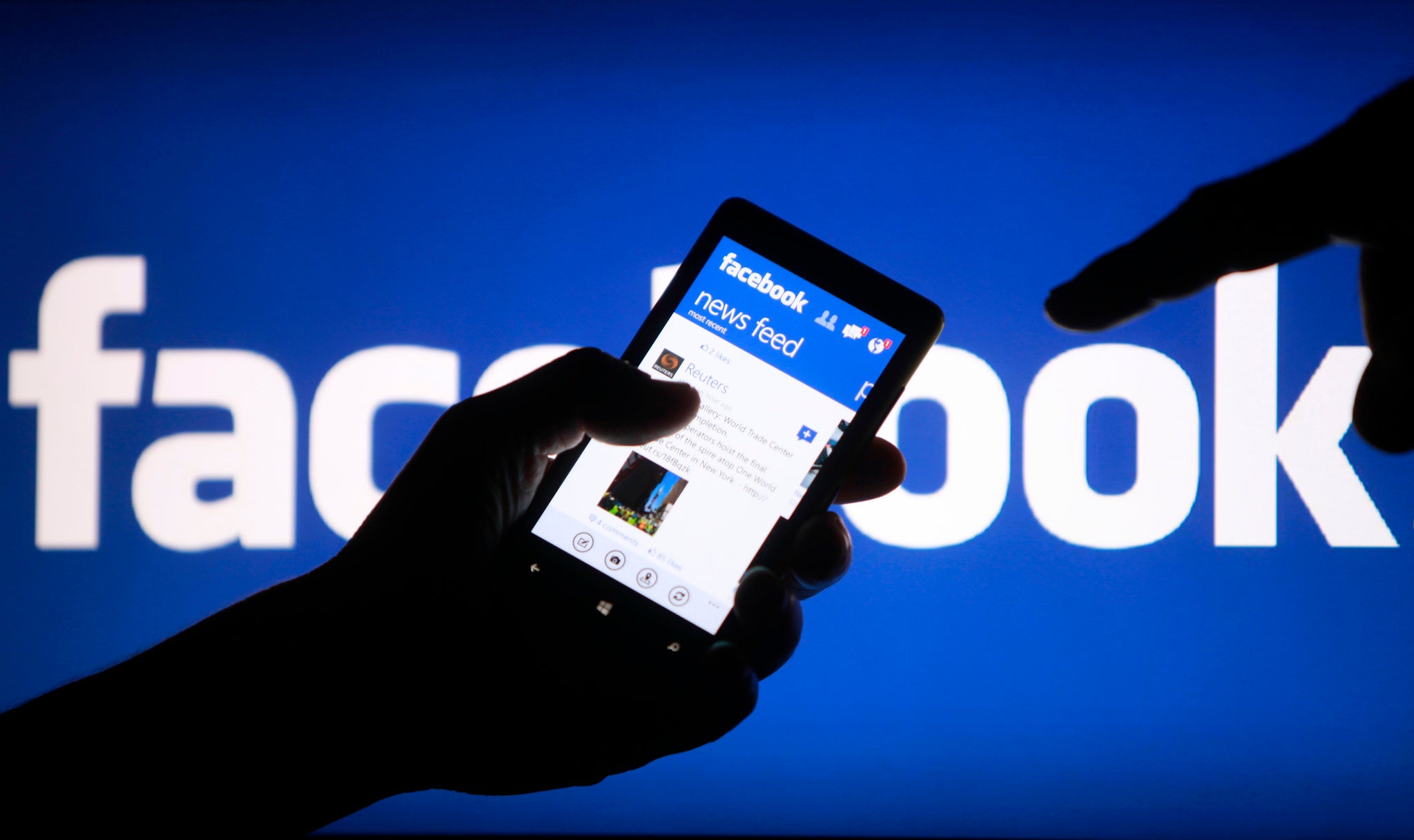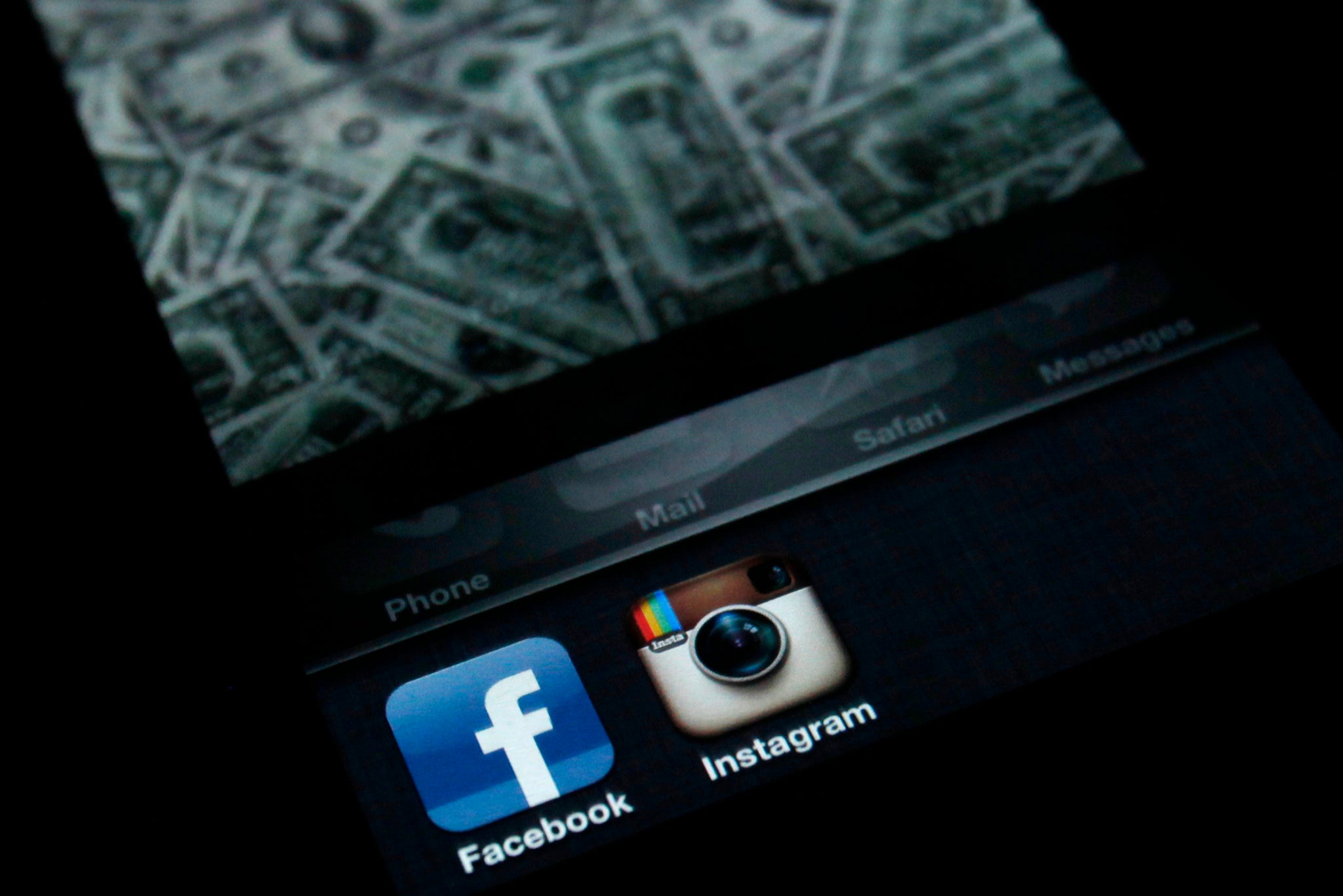Facebook is an 'infectious disease' and will lose 80% of users by 2017, according to researchers
Research says Facebook users will quit the site once they have 'recovered'

Your support helps us to tell the story
From reproductive rights to climate change to Big Tech, The Independent is on the ground when the story is developing. Whether it's investigating the financials of Elon Musk's pro-Trump PAC or producing our latest documentary, 'The A Word', which shines a light on the American women fighting for reproductive rights, we know how important it is to parse out the facts from the messaging.
At such a critical moment in US history, we need reporters on the ground. Your donation allows us to keep sending journalists to speak to both sides of the story.
The Independent is trusted by Americans across the entire political spectrum. And unlike many other quality news outlets, we choose not to lock Americans out of our reporting and analysis with paywalls. We believe quality journalism should be available to everyone, paid for by those who can afford it.
Your support makes all the difference.A new study of Facebook has predicted that the social network’s rapid growth will prove unsustainable and that the site will lose 80 per cent of its users between 2015 and 2017.
A group of Princeton researchers has compared Facebook to a highly infectious disease, claiming that after it reaches a certain critical mass of ‘infected’ users, these individuals will ‘recover’ and quit the site.
The paper, which has not been peer-reviewed, uses “epidemiological models to explain user adoption and abandonment of online social networks, where adoption is analogous to infection and abandonment is analogous to recovery.”
At first glance, this application of disease dynamics to social networks sounds like a bad fit. For a start, most highly infectious diseases contribute to their own decline by killing their hosts – Facebook isn’t quite so virulent.
However, the researchers claim that these sorts of disease models have been shown to work in the past, writing in their paper that "ideas, like diseases, have been shown to spread infectiously between people before eventually dying out, and have been successfully described with epidemiological models".

"Ideas are spread through communicative contact between different people who share ideas with each other. Idea manifesters ultimately lose interest with the idea and no longer manifest the idea, which can be thought of as the gain of 'immunity' to the idea."
The researchers use the rapid rise and fall of MySpace as the archetype, comparing publicly available data from Google with the traditional SIR model of infectious disease. ‘SIR’ stands for Susceptible, Infectious and Recovered - the three groups that individuals are placed in with regards to a public disease.
When the classic bell curve of the SIR model is compared to MySpace’s user numbers (below) the correlation does look quite convincing, but the researchers still make several assumptions that suggest Mark Zuckerberg and co can still sleep easy.

Although it’s certainly true that various social networks such as Instagram and Twitter are regarded by teens as being ‘cooler’ than Facebook, this lack of wow factor with younger demographics will probably be exactly what sustains Facebook.
The social network has integrated itself into the fabric of the web in a way that MySpace never managed - not just in terms of accessibility with older users (who, incidentally, aren’t likely to jump ship to Snapchat) but also with how the social layer of the internet has become unavoidable.
For example, although the researchers cite a declining number of searches for Facebook as evidence that it has reached ‘peak popularity’, the ubiquity of ‘like’ and ‘share’ buttons (as well as the ability to embed posts) mean that searches are hardly the top way to get to the site.
At its peak MySpace had around 100 million users whilst Facebook currently has more than 1.2 billion. Add to this the site's mobile apps (more of which are expected this year) and it seems that users don't even have the option to ‘recover’ from the site - for the moment, Facebook is part of the web’s wider ecosystem now, for better or for worse.
Join our commenting forum
Join thought-provoking conversations, follow other Independent readers and see their replies
Comments